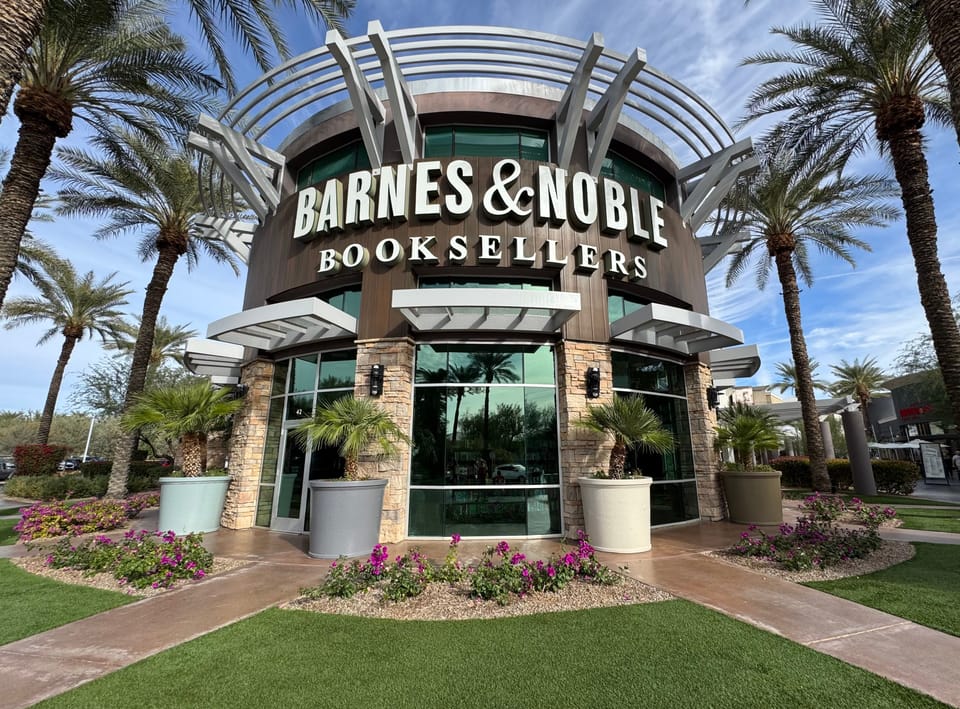Lessons from Barnes & Noble for Christian Radio

Yes, that Barnes & Noble.
The one that almost crumbled under the onslaught of what was once called "The World's Biggest Bookstore."
Stodgy and staid old Barnes & Noble is in the midst of a renaissance. They opened dozens of new locations last year (even taking over former Amazon bookshops), and this year they're opening dozens more. Their financials are glowing.
How did they do it, and what does their example mean for a local Christian radio station like yours?
Credit their new CEO, James Daunt, and his three-pronged strategy:
- Decentralize book-buying decisions to individual store managers
- Prioritize books over non-book products
- Enhance the in-store experience
These three tactics sum up to one thing: Create an Indie bookstore experience. That is, curating bookshelves by local teams for local customer tastes, focusing on books - the main reason folks come in the door, and transforming a book-shopping trip into an experience.
You can think of the local bookseller as a local DJ - they're the ones who know all about the music ("books"). They know what you like and can recommend what they like to you. This notion goes back to the roots of FM radio and the original FM format, "Album-Oriented Rock," and its musicologist DJ's.
For Christian radio, an "Indie bookstore experience" focuses on music, which is the primary reason listeners are here in the first place. It positions the bookseller/DJ as the authority on local tastes and the custodian of those tastes. While many radio stations have evolved away from a locally-based model, there are today many locally-driven stations doing a superb job at creating exactly this kind of experience for their fans (the Northwestern Media stations come to mind, so does Orlando's Z88.3, and so many others).
Note that an "Indie bookstore experience" isn't about being in the neighborhood, per se. It's not about "being local." It's about being relevant and impactful for local people.
According to longtime B&N store manager Victory Harty, "We used to be told what table to do, how to curate it, where that table should go, what angle that table should be on, and what discount that table potentially is going to have. It was very regimented."
Sounds like every iHeart station, right? But now, those decisions are all made locally. The decisions are closer to the customers and the customers are responding.
This is why your radio station is best off testing music locally rather than relying on "safe lists" or national charts. It's why Perceptual Studies are still so important. It's why you have PD's with their fingers on the community's pulse rather than playlists controlled remotely from afar.
B&N CEO Daunt explains their strategy this way:
If you buy Percival Everett's "James" from Amazon, it's the same Percival Everett I will sell you. But if you come into this store to buy it, you will come in, you will be surrounded by other books, which you can browse and engage with. Almost certainly you, will have another fellow customer saying, oh, have you read this by him? Have you read that? You will have an experience. And when you walk out of the store with it in your bag, it will lift you. It's the same book, but I promise you it's a better book and the reading of it will be more pleasurable because you bought it in a bookstore.
The experience of buying the book is different in the bookstore than it is on Amazon, just as the experience of hearing the music should be different on your radio station than it is on Spotify.
So here are the key questions for you:
- How much of the decision-making for your brand happens with the local team who knows and lives in the local market?
- How much do your DJ's ("booksellers") know about the music ("books") and the artists ("authors")
- Do you do research locally to uncover the preferences your friends and neighbors have that are different from what's "national"?
- How do you define the "experience" of your brand? What makes it extraordinary and so much more desirable to local fans than what they can hear (commercial-free) on Spotify?
Mark Ramsey Media does audience research for Christian Media - Perceptual research, digital studies, donor studies, music studies, etc. Learn more here. Call Mark at 858-414-4191 or email markramsey@mac.com.
And if you want a strategy to solicit major donors to pay for your research, look here and download this Listener Impact Study solicitation for donors from WAKW-FM.
Want to sign up for this newsletter? Do that here.






Member discussion